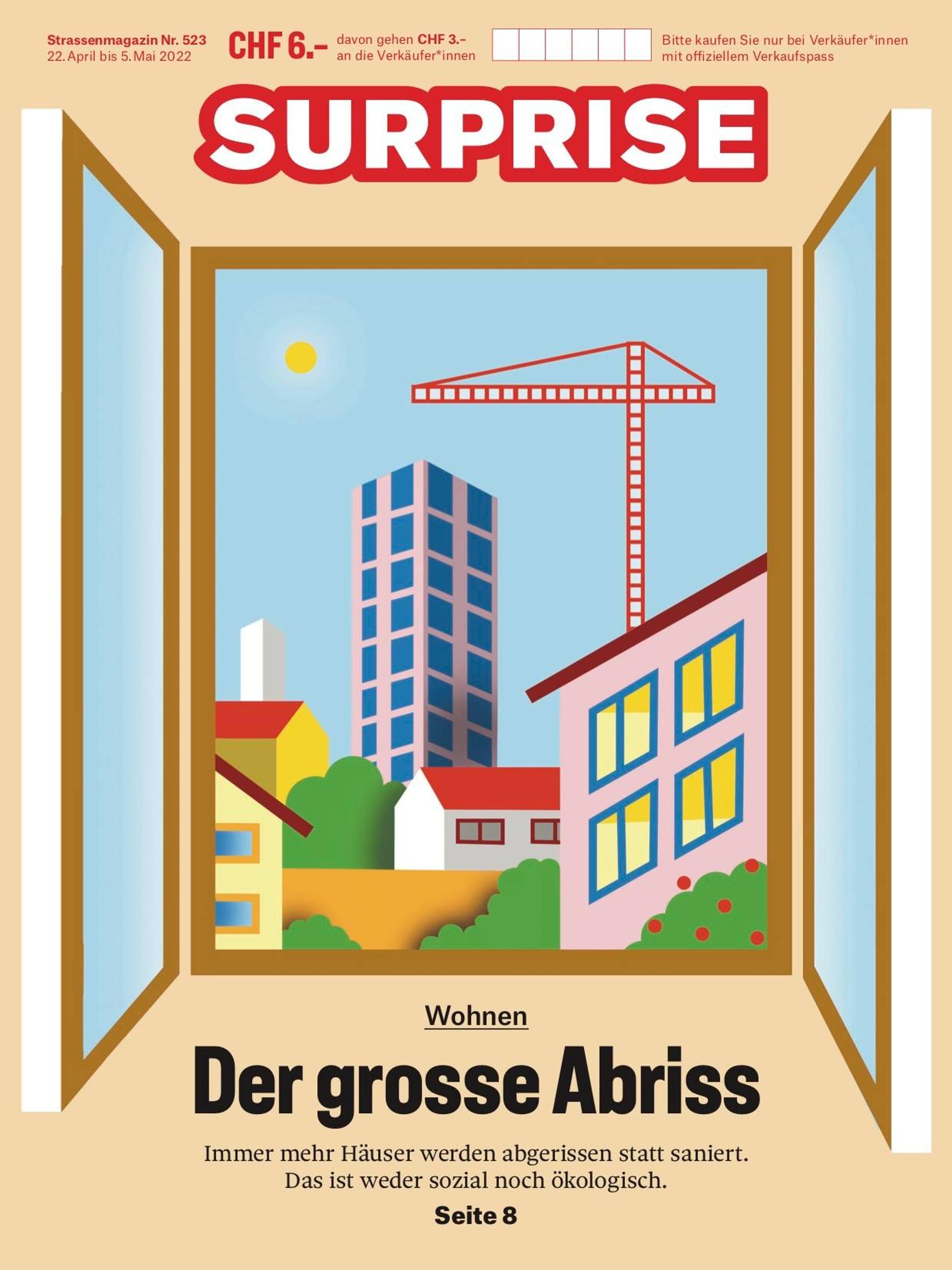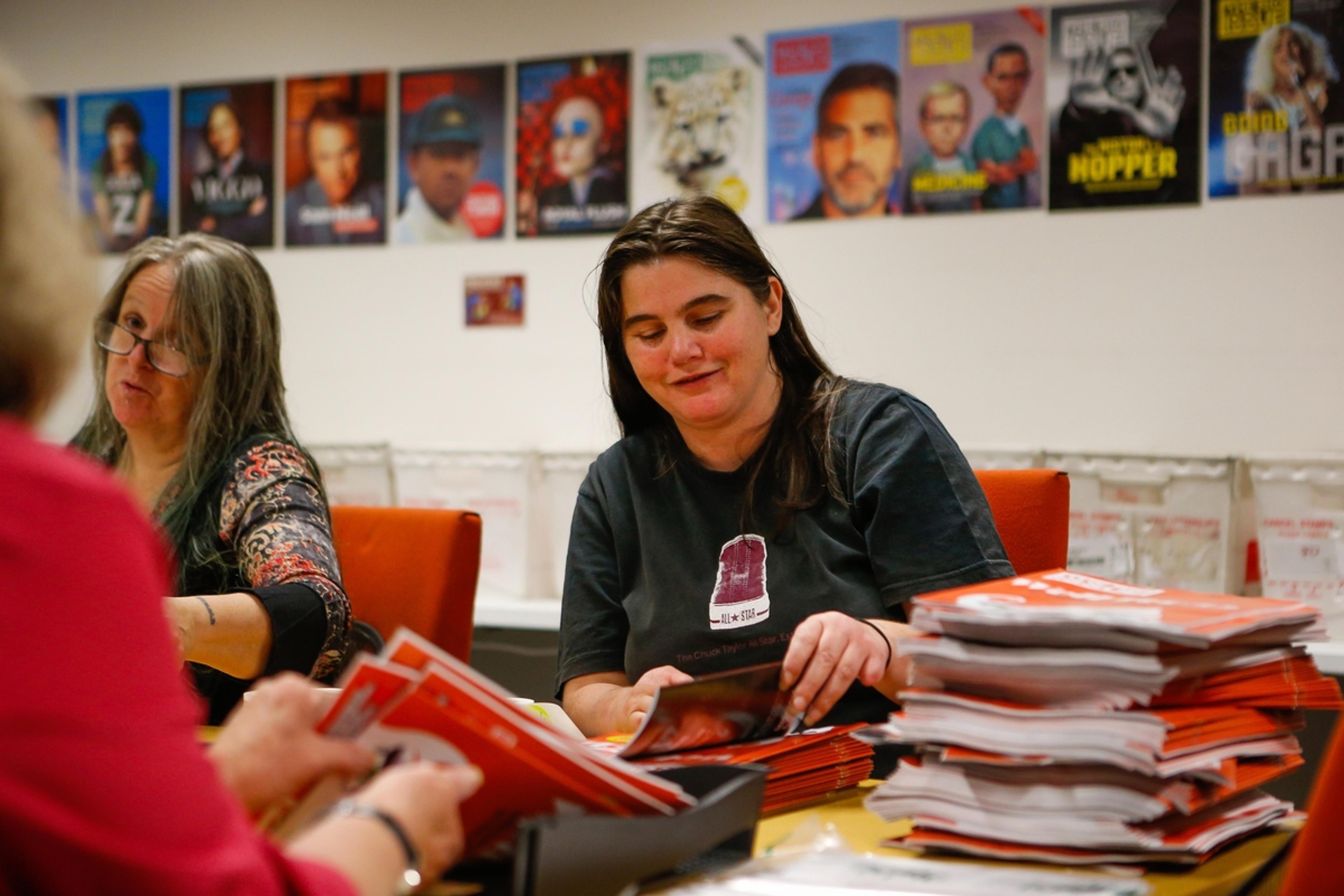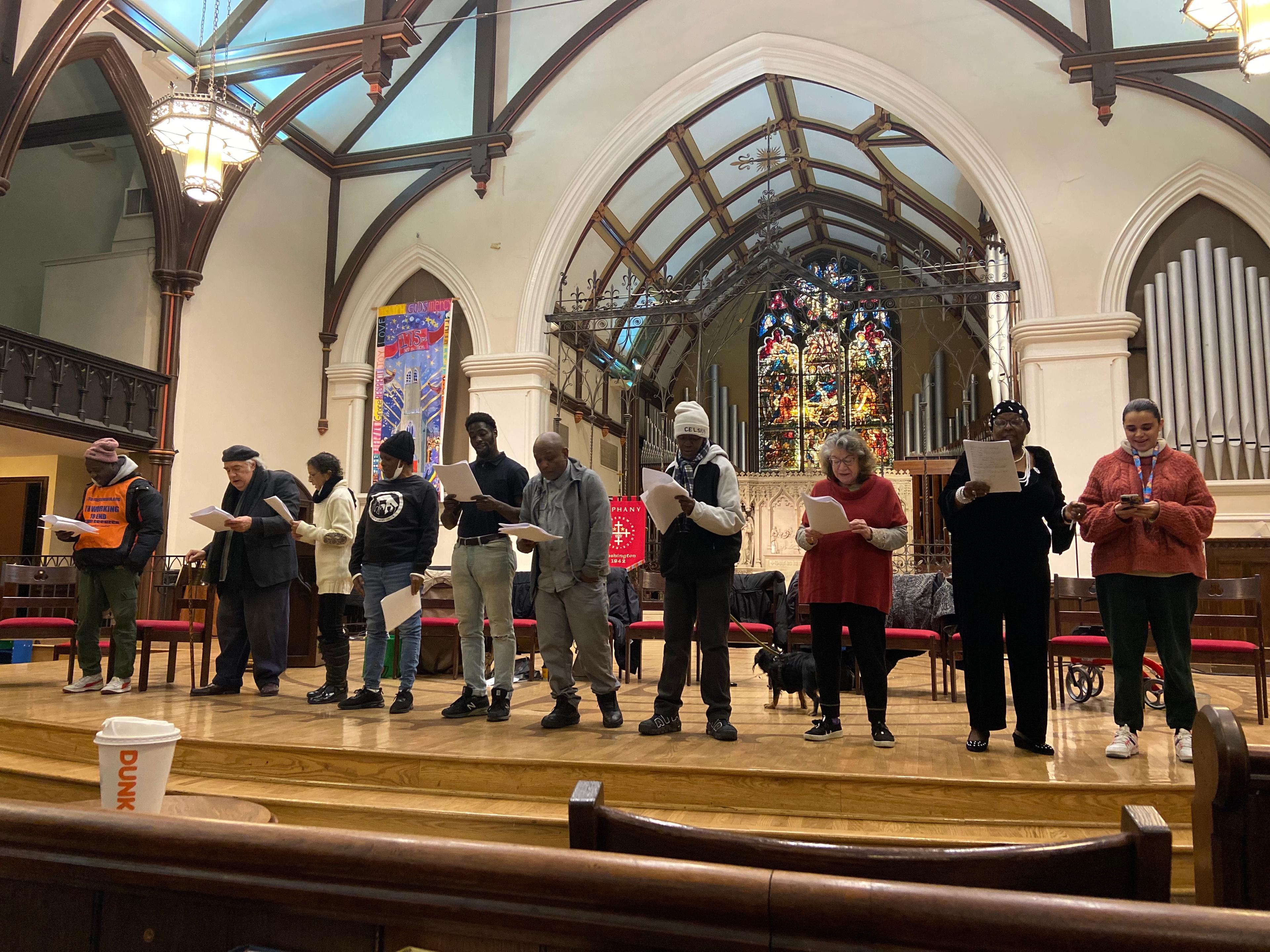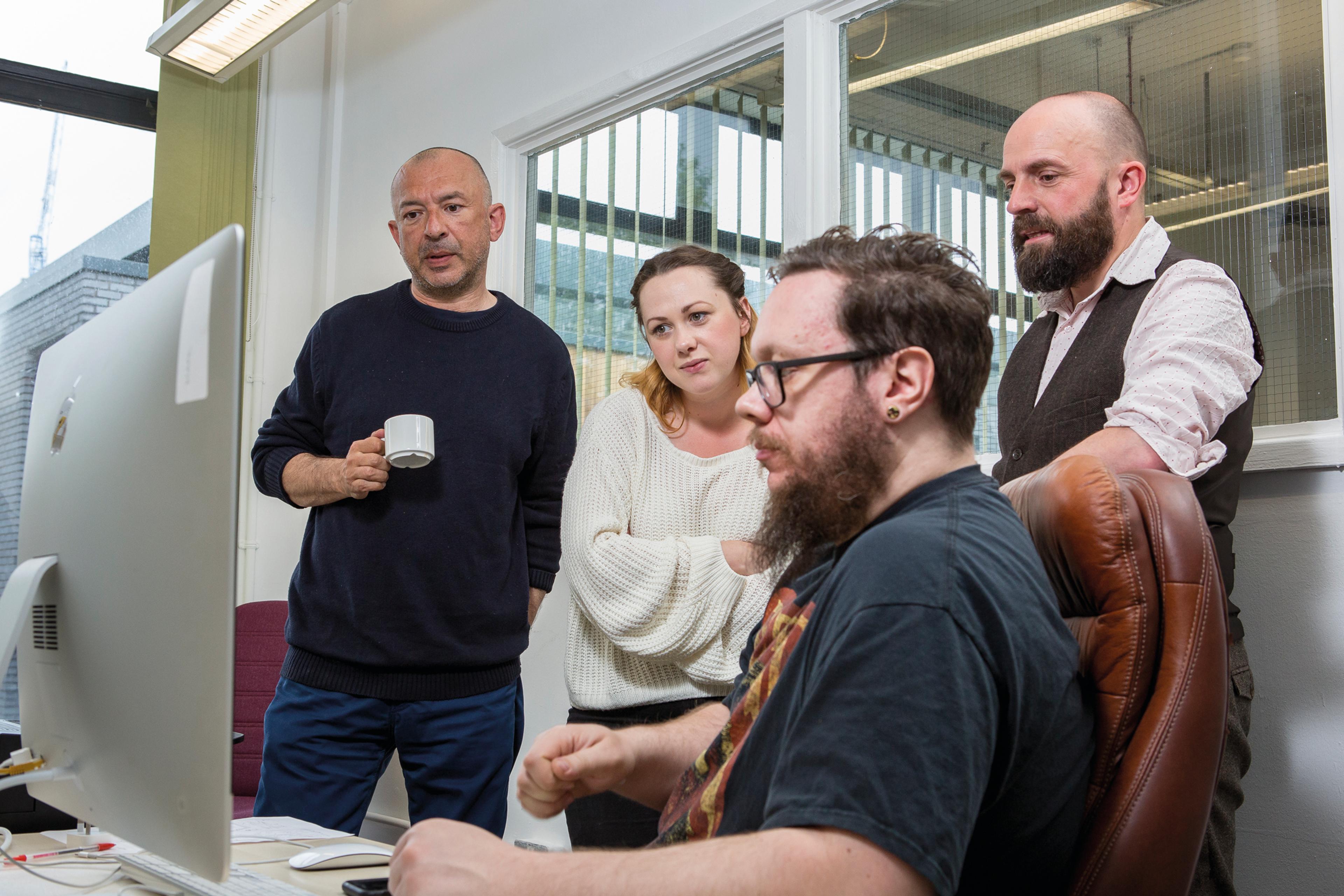“They act as if we don’t exist”: Switzerland’s in-work poverty rises

Biel, Switzerland. Photo by Miguel Lindo. Sourced by INSP
By Klaus Petrus
- Street paper news

Switzerland
Population: 9 million
People at risk of poverty: 1.34 million
Working poor: 298,000
Poverty line for a family of four: just under 4,000 francs (€4,280)
Average cost of raising a child to the age of 20 (canton of Zurich): 230,000 francs (€246,100)
Average rent for a 4.5-room flat advertised: Biel/Bienne 1,800 francs (€1,926); Bern 2,400 francs (€2,568); Zurich 3,300 francs (€3,531)
Average gross annual salary of a carpenter: 64,300 francs (€68,801)
Motto: “Unus pro omnibus, omnes pro uno” (“One for all, all for one”)
In Switzerland, around 700,000 people are affected by poverty, another 600,000 live just above the subsistence level – and half of them are employed, meaning that they can barely make ends meet even though they work. These “working poor” are not a uniform social class; they include families, single mothers and migrants. They work in the low-wage sector, work part-time, or have so-called “mini-jobs”. As in other European countries, their numbers are also increasing in Switzerland because of inflation, rising rents and health insurance premiums, and changes in the labour market.
Since the 1950s at the latest, Switzerland has been regarded as a society of social advancement. The image of the “elevator effect” dominated – with interruptions in the mid-1970s, for example, when there was a recession – according to which most people were moving upwards. The welfare state was one of the key factors in this progress, as were rising wages and the falling cost of consumer goods.
Those who offered their labour were still dependent on those who had the capital to buy it, and there were and still are massive differences between rich and poor. But the wage earners finally had prosperity at their disposal – and there were more and more of them. In Switzerland, the proportion of people in employment is now just under 85%. The majority of them are middle class, i.e. people who are neither poor (in the sense of the minimum subsistence level) nor particularly rich.
This middle class has remained relatively stable over the last two decades. However, the situation has changed since the Covid-19 pandemic: the increase in the cost of living (such as rent and health insurance) while wages have remained virtually unchanged means that many in the middle class need significantly more money to maintain their previous standard. Those who are unable to do so will fall into poverty.
Experts from poverty research and the social sciences are making some gloomy predictions if this trend continues. Sociologist Andreas Reckwitz, for example, is already talking about a “new underclass” that used to make up the middle class, while his Basel colleague Oliver Nachtwey paints a picture of a “relegation society” that is in danger of becoming embroiled in new “class wars” due to increasing inequality.
Martin and Barbara shared their story of in-work poverty.
The man
Name: Martin G.
Year of birth: 1983
Place of birth: Langenthal
Place of residence: Biel/Bienne
Spouse: Barbara G.
Children: Two sons, aged 11 and 13
Education: Carpenter (master craftsman)
Hobbies: Cycling
Favourite drink: Riesling
Favourite food: Thai
Favourite music: Blues rock
Political party: Social Democratic Party of Switzerland
Motto: “Better to be marked by life than painted by Picasso.”
What gets me down is the idea that someone is looking at me and is seeing in what situation I am – as if I had sunburn, or a rash on my face – and that they will point at me and say, “Look at that poor guy!” That would be horrible.
That’s why I pay attention to my clothes now. Not that I used to walk around looking like a slob. I just didn’t really care. Nowadays, my jeans can’t have any stains, my shirts have to be spotless, and my shoes go without saying. I make sure my shoes are clean. My wife smiles about it. But I don’t want to be recognised as a poor schmuck. I don’t want to stand out, you understand?
It’s actually quite simple: every month, around the 17th or 18th, we run out of money.
After completing my carpentry apprenticeship, I worked here and there for a few years, mainly on construction sites. It was a good time; I earned decent money. That’s when I met Barbara. I was smitten. It took her longer.
By the time we were married in our late twenties, I had qualified as a master craftsman. I wanted to be my own boss, take on responsibility, build something. Then I had my own little business for almost 10 years, with three employees and an apprentice. Business was never great, but I was able to pay the wages, support my family and put something aside, as you do.
Then, five years ago, the pandemic hit. I lost important contracts all at once, and one thing led to another.
Admittedly, I was never much of a businessman. If you want to survive as a self-employed craftsman, you need connections. You have to be on good terms with this person and that person; you have to be able to suck up. Otherwise, someone else will get the job and you’ll be left behind. Maybe I should have tried harder. I hate to say it, but that’s how it is: I failed. I messed up across the board.
My wife always says that lots of people are in the same boat as us. I think she’s just trying to reassure me. I don't know what she really thinks.
I’m now back working in a carpentry workshop around 70 percent of the time, depending on what the boss has for me. The pay is poor and there’s a lot of competition in the area. Sometimes, I work illegally on an hourly basis, which is stupid. If I have an accident there – I don’t even want to think about it. Anyway, I can’t afford to be off sick. I panic when the flu is going around. Then I think, “Oh God, please no.”
I’m over 40 now. You can't go knocking on your father’s door begging for money! He would throw his hands up in the air, I know that for sure. He would say: “Pull yourself together!”
But I don't want to complain. There are others in worse situations, for example [those sleeping] behind the train station, or in the emergency shelter – it’s just around the corner from us. I avoid going there now; I don’t want to be reminded of how deep the hole that you can fall into is. When I try to talk to my wife about it, she just says, “That won’t happen to us.” But it’s possible, don't you think? The rent is constantly going up, inflation, insurance premiums, the children, the dentist, electricity – everything costs money, and as soon as you’re in debt...
When all else fails, then in God’s name, go to the social welfare office. That’s what my wife says. The thought makes me feel sick.
People like me become cheats and liars. I don’t steal from anyone; I don’t rip anyone off – that’s not what I mean. But I cheat wherever I can, I wheedle and trick my way through the day, all so that others don’t think, “He can’t afford that, he’s got nothing, he’s a nobody.”
When my mates call and say, “Come on, let’s go for a drink,” or, “to the match,” or, “to a concert,” I’m guaranteed to have something else on. “Don’t bother asking Tinu, he’s busy anyway” – that’s what they say now. I wish.
Going to an EHC Biel game at the Tissot Arena with friends? Let me break it down for you: the bus costs 2.30, admission is 27 francs, a beer is 5, a bratwurst is 7, then a nightcap in town, and that’s around 50 francs (€53.50). What’s that in labour? My wife is the one with the numbers, she can explain it to you. Maybe she'll say: for 50 francs, I have to clean for two hours. Or longer.
If you don’t have any money in Switzerland, you may not go hungry. But you’ll be lonely.
I didn’t used to worry much about money. But back then, we used to go on holiday to Morocco, the whole family, 10 days on the beach, snorkelling, camel rides, the whole shebang. As I’m talking about it now, I realise that “back then” was only a few years ago. And now... How quickly you can fall from grace. It’s like a slide. One minute you’re at the top, enjoying the view, and then: bang.
Sometimes I catch myself feeling angry. It doesn’t suit me at all. I just can’t get my head around how people who work hard have to count every penny – and that’s already in the middle of the month. How can that be? In a country as rich as Switzerland? Then I get angry at the rich, the snobs, the people at the top. But enough now; I'm already sounding like one of the Swiss People’s Party...
Not even 10 horses could have dragged me to a second-hand shop in the past. Eating off used plates? Wearing someone else’s trousers? “Yeah, right,” I would have said. Now Barbara and I go there on Saturdays for our little shopping trips, just like we used to go to [local shopping mall] Shoppyland. Somehow, people get used to everything, don’t they?
The woman
Name: Barbara G.
Year of birth: 1985
Place of birth: Lyss
Place of residence: Biel/Bienne
Spouse: Martin G.
Children: Two sons, aged 11 and 13
Education: Kindergarten teacher
Hobbies: Swimming
Favourite drink: Beer
Favourite food: Anything spicy
Favourite music: Metal
Political party: None
Motto: “If you don’t want it, you don't get it.”
I was always afraid of it, and last year, it finally happened: we got into debt. First, we couldn’t pay our taxes, then our insurance, and when a registered letter from the debt collection agency arrived in the summer, I knew: now we’re in trouble.
I have a checkered notebook where I write down all our expenses: food, clothes, the occasional gift, school supplies, bus tickets, skin cream, everything. I buy a lot of things on eBay or Tutti, and of course I always look for special offers. My quirk is that I put everything I save in the first two weeks of the month – for example, 1.25 when buying washing powder on special offer – aside for the second half of the month, because that’s when things get tight for us.
After all our fixed costs, the four of us live on just under 40 francs (€42.80) per day. Now, you might think that's not so little. But what if you have debts? Or if – the classic scenario – you have a problem with your teeth? Like my husband, Tinu, recently. At first, he didn’t want to get it treated. When I told him it would only get more expensive the longer he waited, he went to the doctor and had the cheapest option done – for 327.80 (€350.75). That used up our daily budget for nine days.
It may sound ridiculous, but calculation gives me a sense of control. The downside is that I am preoccupied with numbers and prices all the time. My husband and I have an agreement: “How much do you think that costs?” is a question that is forbidden to ask.
No one knows about this except my best friend, and she only knows because she caught me making one of my excuses for not going to the cinema. When I told her I couldn’t afford it, she was completely shocked. Of course, she wanted to pay for me. It took a lot to make her understand that I didn’t want her pity, that it would only embarrass me even more. It almost ruined our friendship.
Of course, my marriage suffers too, as you can imagine. When there’s only one topic of conversation – money and more money – all the romance goes out the window. My husband feels guilty, even though I keep telling him it’s not his fault, that lots of people are in the same situation. But he just shakes his head and turns away. And he’s right; what kind of consolation is that?
I don’t know if I should say this – it will probably hurt him – but Tinu used to be a funny and charming person. For the last two or three years, he has become withdrawn, closed off and sometimes grumpy. I’m sorry about that.
I’m turning 40 this year. I’m married and have two wonderful boys. Of course, I sometimes wonder how my life could have turned out differently. I loved studying and trained as a nursery school teacher, which was my dream job. The plan is to go back to work at some point. But it’s not that easy. Most jobs are full-time or in other cantons, and neither is possible for me at the moment because of the children.
I’ve now started cleaning for people in their homes for just under 20 francs (€21.40) per hour, cash in hand, which my husband didn't want me to do at all. We rarely argue, but that was intense. For him, a wife who cleans other people’s toilets is a reflection of his own failure. I don’t mind; I get paid for it like others do for their work. And no one is watching me do it.
Tinu and I don’t talk about it anymore. We don’t talk much in general. That has something to do with me, too. I’m often tired from all the stress about money. If it weren’t for the children, I’d be alone, and I’d manage somehow. I’d tell myself that I’ll get out of this, that everything will be fine. But as it is, I’m exhausted.
It’s important to me that our sons don’t find out about any of this. I want everything to be normal for them. Not peace, love and harmony – who has that all the time in their family? – but as normal as possible. Fortunately, they’re not very demanding. I mean, they don’t always want the latest thing. And if one of them wants a fancy necklace that costs 35 francs (€37.45) or the other wants a sports bag for 85 (€90.95), then so be it. If I can't afford it, I try to explain it to them somehow without them realising it’s because of money.
A bit cowardly, you might think. Yes, I lie to my children. I just don’t want them to feel excluded because of it. I’d rather eat pasta and polenta for weeks. Money worries are our worries, not theirs. Can we change the subject?
Actually, I would have been in favour of appearing here with my full name, even with a photo if necessary, because I am convinced that we are no exception. It’s just that no one wants to talk about it. People act as if we don’t exist. By hiding ourselves, we are not making things any better: we are making ourselves invisible.
I’m starting to wonder, as you can tell, if standing up and saying how it is – “We’re poor too!” – would actually be the right thing to do. But that’s the thing. The worst thing about shame is that you always feel out of place; you think the whole time, “I don’t want to be here.”
That all sounds very negative. But there are other moments too, carefree ones. Then I say to Tinu, “Get ready, let’s go for a walk to the lake and treat ourselves – you have a white wine, I’ll have an amber.” Of course, I know what he’s thinking: “Can we afford that?” But I just ignore it and smile at him. Later, we’re sitting in the Räblus, sipping our drinks, and I think to myself, “This is good.”
Translated from German by Lisa Luginbuhl
Courtesy of Surprise / INSP.ngo
You may also be interested in...

Q&A: How The Big Issue Australia is empowering women through enterprise
Read more
Street Sense Media vendors stage play exploring solutions to homelessness
Read more